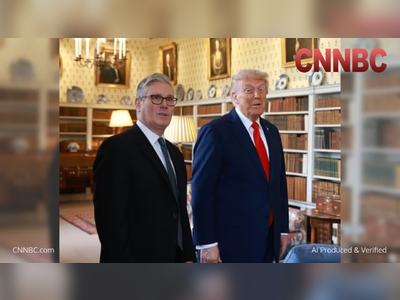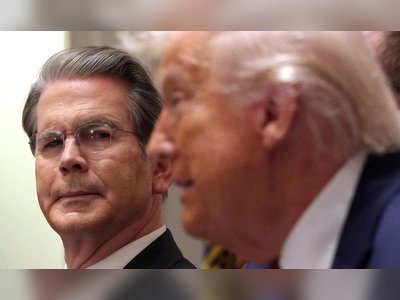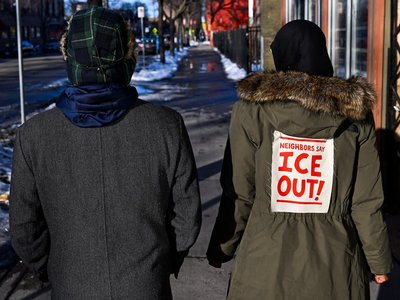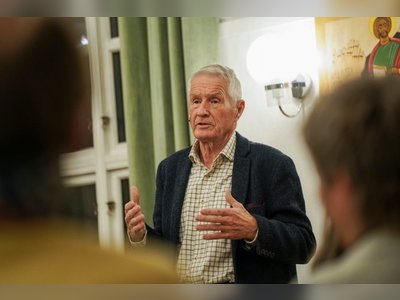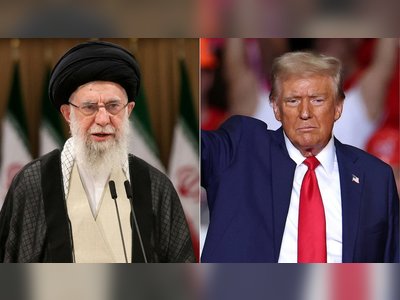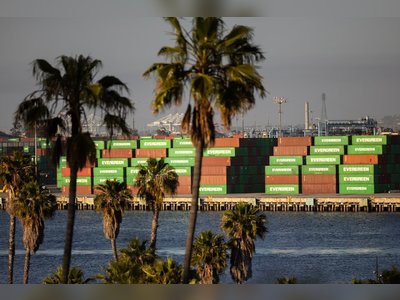
Ceasefire Agreement Reached Between Israel and Hamas: An Overview
Qatar announces a 42-day ceasefire with provisions for humanitarian aid and a hostage exchange.
In a significant diplomatic development, Qatar announced on Wednesday evening from Doha that Israel and Hamas have reached a ceasefire agreement, which is set to commence on Sunday and will span 42 days.
This deal includes provision for the exchange of hostages held by Hamas in Gaza and Palestinians detained in Israeli prisons.
The agreement aims to ease longstanding tensions and restore some stability to the region.
The ceasefire arrangement encompasses several critical measures.
Among them is the facilitation of the return of Palestinians who have been displaced by Israeli forces back to their homes across the Gaza Strip.
The deal also provides for the medical treatment of individuals wounded in the conflict and allows sick persons to travel for care.
Moreover, the ceasefire mandates specific positioning of Israeli forces along the Gaza border.
US President Joe Biden has confirmed that the United States is involved in the agreement, stating that American hostages will be part of the release.
President Biden emphasized that the ceasefire would halt ongoing conflict in Gaza, provide much-needed humanitarian assistance to Palestinian civilians, and reunite families with loved ones who have been held hostage for over 15 months.
Furthermore, Egyptian state media reported that Egypt is preparing to supply a substantial amount of aid to the Gaza Strip.
Measures are being coordinated to open the Rafah crossing to facilitate the entry of international humanitarian aid into the region.
The Israeli security cabinet is scheduled to meet on Thursday to deliberate on the ceasefire and hostage release deal.
Reports suggest that a majority of ministers are expected to approve the agreement.
In the midst of these diplomatic developments, the US President-elect, Donald Trump, declared his influence on the ceasefire agreement, suggesting that it was attributable to his recent election victory.
The deal, according to Trump, marks a potential shift towards peace under his anticipated administration.
International reactions have varied, with UK Prime Minister Keir Starmer advocating for a significant increase in humanitarian aid to Gaza.
UN rights chief Volker Türk expressed relief, calling for rapid and unhindered aid access, while Turkish President Recep Tayyip Erdoğan welcomed the agreement, voicing hope for broader peace and stability.
The UN’s secretary-general, António Guterres, has also urged all parties to adhere to their commitments under the agreement and to seize this moment as an opportunity to pave a path towards a sustainable political resolution.
This ceasefire follows 15 months of intense conflict, with both immediate and broader humanitarian impacts.
It has been met with cautious optimism by various international actors, each highlighting different aspects of the agreement as pivotal.
Overall, this preliminary ceasefire deals with acute issues such as hostages’ release and humanitarian access, but it also reflects deeper geopolitical complexities and longstanding grievances in the Israeli-Palestinian conflict.
As such, the coming weeks will be crucial in determining the deal's effectiveness in establishing lasting peace and stability in the region.
This deal includes provision for the exchange of hostages held by Hamas in Gaza and Palestinians detained in Israeli prisons.
The agreement aims to ease longstanding tensions and restore some stability to the region.
The ceasefire arrangement encompasses several critical measures.
Among them is the facilitation of the return of Palestinians who have been displaced by Israeli forces back to their homes across the Gaza Strip.
The deal also provides for the medical treatment of individuals wounded in the conflict and allows sick persons to travel for care.
Moreover, the ceasefire mandates specific positioning of Israeli forces along the Gaza border.
US President Joe Biden has confirmed that the United States is involved in the agreement, stating that American hostages will be part of the release.
President Biden emphasized that the ceasefire would halt ongoing conflict in Gaza, provide much-needed humanitarian assistance to Palestinian civilians, and reunite families with loved ones who have been held hostage for over 15 months.
Furthermore, Egyptian state media reported that Egypt is preparing to supply a substantial amount of aid to the Gaza Strip.
Measures are being coordinated to open the Rafah crossing to facilitate the entry of international humanitarian aid into the region.
The Israeli security cabinet is scheduled to meet on Thursday to deliberate on the ceasefire and hostage release deal.
Reports suggest that a majority of ministers are expected to approve the agreement.
In the midst of these diplomatic developments, the US President-elect, Donald Trump, declared his influence on the ceasefire agreement, suggesting that it was attributable to his recent election victory.
The deal, according to Trump, marks a potential shift towards peace under his anticipated administration.
International reactions have varied, with UK Prime Minister Keir Starmer advocating for a significant increase in humanitarian aid to Gaza.
UN rights chief Volker Türk expressed relief, calling for rapid and unhindered aid access, while Turkish President Recep Tayyip Erdoğan welcomed the agreement, voicing hope for broader peace and stability.
The UN’s secretary-general, António Guterres, has also urged all parties to adhere to their commitments under the agreement and to seize this moment as an opportunity to pave a path towards a sustainable political resolution.
This ceasefire follows 15 months of intense conflict, with both immediate and broader humanitarian impacts.
It has been met with cautious optimism by various international actors, each highlighting different aspects of the agreement as pivotal.
Overall, this preliminary ceasefire deals with acute issues such as hostages’ release and humanitarian access, but it also reflects deeper geopolitical complexities and longstanding grievances in the Israeli-Palestinian conflict.
As such, the coming weeks will be crucial in determining the deal's effectiveness in establishing lasting peace and stability in the region.

